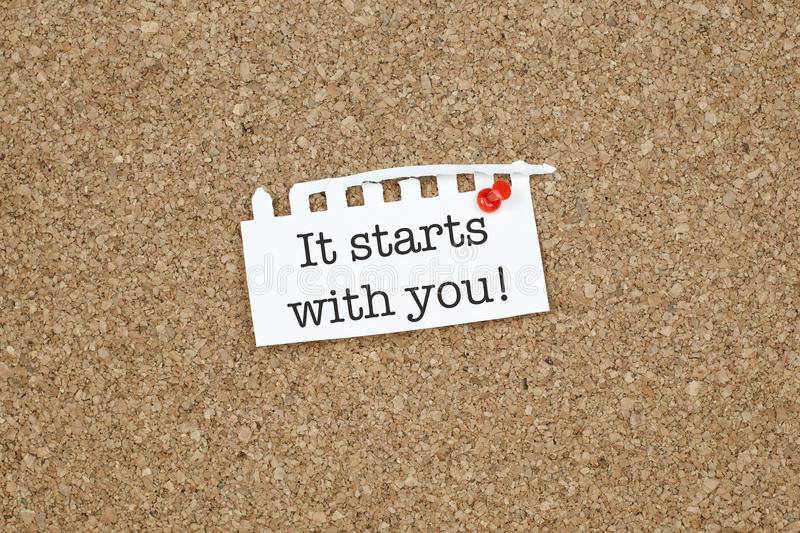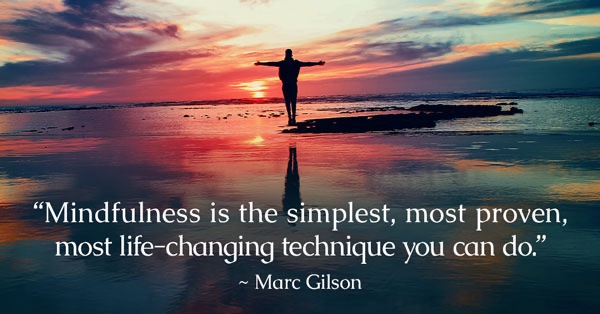(Three Very Good Reasons People Don’t Meditate)
By Marc Gilson - Centerpointe Research Institute
Have you heard the news?
Mindfulness is good for you! Heck, if you’ve only heard a smattering of news about mindfulness in the last decade or so, you know that there’s an almost endless list of benefits.
According to recent research, mindfulness has been shown to:
- Improve relationships
- Help stave off dementia and Alzheimers
- Improve digestion
- Combat high blood pressure
- Ease chronic pain
- Help with weight loss
- Improve balance and motor coordination
- Reduce risk of stroke and heart disease
- Slow premature ageing
- Strengthen the immune system
- Improve learning, focus, and memory
…and that’s just the tip of the mindfulness iceberg.
Once considered a kind of fringe hobby or something only Buddhist monks living high in the Himalayas did, mindfulness is now common not only in living rooms, but boardrooms too.
Mindfulness techniques have been implemented by big corporations, the military, professional athletes, financial traders, physicians, and more.
And if you’re a Mind Power subscriber, you’ve seen countless references to studies demonstrating the benefits of mindfulness.
To put it succinctly:
Mindfulness is the simplest, most proven, most life-changing technique you can do.
But this raises the question:
If mindfulness is so great, why isn’t everybody doing it?
Researchers say about 400 million people worldwide practice some form of mindfulness meditation.
That seems like a huge number, more than the total population of the United States. But when you consider the world population is currently about 7.9 billion people, it represents just 5% of the world.
It seems there’s almost nothing mindfulness can’t improve. But the vast majority of people don’t do it.
To me, that’s a tragedy, especially when you consider the current state of affairs in our severely stressed-out world.
Who couldn’t use at least one or two of the benefits that come from simply sitting down quietly for a few minutes each day?
Putting our individual goals aside for a moment, wouldn’t the world as a whole be far better off if more people spent a few moments of mindfulness each day?
Having spent half my life practicing and studying mindfulness (and encouraging others to practice it), I’m not only keenly aware of the benefits of mindfulness, but I’ve also become familiar with the many reasons (or excuses) people don’t do it.
But I’ve learned not to be dismissive of these reasons. I can relate to them. In fact, I’ve used them myself!
There are some pretty good reasons why people don’t practice mindfulness.
Who’s Got Time For That?
Look, I get it. Nobody has extra time in their schedule to - what - sit down and do nothing?
But mindfulness isn’t really “doing nothing.” In a world addicted to instant gratification, it’s tempting to judge the value of an activity based on how immediately the results arise.
This is what I call the “gum ball machine mentality.” You put a coin in, and a prize pops out. If we invest time and don’t appear to get an immediate result, it feels like we’ve wasted that time. This is a mistake in perception.
Take exercise for example. Getting fit doesn’t happen only when we’re sweating it out on the treadmill.
Muscle tissue breaks down and rebuilds itself, a process that continues to “burn fat” long after your workout is done.
Mindfulness is like that. The benefits extend far beyond the time we’re doing it. It’s not a momentary activity with a momentary benefit, but an investment that yields results over the long term.
Nobody has time to just sit around doing nothing. That’s why when I teach people to meditate, I always say the same thing: Make a short term commitment of six weeks. Meditate - or listen to Holosync - for six weeks, come hell or high water.
Just do the practice and don’t worry about what happens or doesn’t.
After every session, pat yourself on the back and then come back tomorrow and do it again. Wash, rinse, repeat.
If you commit to six weeks of daily Holosync listening, or any form of mindfulness meditation, you’ll be seeing significant results. I promise.
And once you do, the time you spend meditating won’t seem wasted at all. As soon as the results start manifesting, it’ll become one of the most valuable times of your day.
The Most Addictive Drug
Few meditation teachers will tell you this, but the truth is that if you want to experience the tremendous benefits of mindfulness, you’ll need to deal with addiction. It’s an addiction almost all of us have, whether we’ve admitted it or not.
It’s the addiction of distraction.
There are some forms of distraction that are unavoidable. The phone rings at an inopportune time; the neighbour's dog barks just as you’re dozing off at night; an unexpected problem arises at the office.
But then there are the distractions we freely engage in that can become bad habits. TVs, video games, phones, laptops, social media - tons of digital distractions claw at our attention like hungry hyenas.
Even as I was sitting here writing this piece, five notifications popped up on my screen and my phone chimed at least four times. Argh!
Individually, these distractions seem pretty harmless. But collectively they represent a drain on our time, energy, and focus.
This is a compelling reason to stop, unplug, and meditate. But it’s also why so many people don’t. The modern mind is very used to having a choice of diversions and amusements within reach.
Once we attempt to remove those distractions, the mind resists, sometimes forcefully.
In 2017, Universities in Bologna, Italy and Bordeaux, France took part in an experiment in which grad students were asked to suspend all connectivity, digitally-speaking, for one day.
The results were fascinating in that they drove home the dependency so many of us have on those little devices we carry around all day.
Most interestingly was the effect this digital abstinence had on the students' mental state.
The students reported that their day seemed longer without their phones.
For some, this was a blessing, because they got more done. But others said they felt “lost” or simply didn’t know what to do with their time. Some said they felt “unsafe” or “exposed” without their phones.
Many students reported an acute sense of anxiety, or even fear, including the infamous FOMO (“Fear Of Missing Out”) as though the lives of their friends and family were happening in the digital world without them.
Now, I’m not advocating for throwing away your phones or laptops. In today’s world, access to online resources and services is considered essential.
But we shouldn’t let our dependency on these distractions keep us from taking a digital vacation now and then, and that includes a few minutes each day to shush our chimes, beeps, and ringtones for a moment of mindfulness.
The Perils of Self Honesty
While it’s easy to talk in glowing terms about the benefits of mindfulness, there’s another side to it that a lot of people don’t talk about much. A darker side.
Meditating can be confronting. It strips away much of our social facade and “ego identity” - that false sense of self - and we see ourselves in a bright and uncompromising light.
We come face to face with unresolved or repressed emotions and beliefs that might be holding us back. And we have to “get real” about ourselves, our values, and our approach to life.
That’s not easy. It takes courage and self-honesty. It’s easy to externalise our problems, to find something or someone else to blame for our troubles.
Mindfulness forces us to stop pointing the finger outwardly and instead sharpens the focus on our own internal shadows - beliefs that are sabotaging our efforts to be happy and successful.
When you look into the tranquil pool of mindful awareness, you’re going to see yourself reflected in stark clarity. Not everyone is prepared for that.
Beneath the facade of how others see us, or even how we see ourselves, there is an authentic and genuine self.
That true self is a being of immense power and wisdom, and the more connected we are to it, the happier we are.
But getting to that core authenticity means weed-whacking our way through a lot of unhealthy ideas about ourselves and the world around us.
This is often met with ego resistance, making the mere idea of meditation sound like a daunting ordeal.
The truth is that if we can muster the courage to confront these inner aspects of ourselves, our real, authentic selves are released like formerly caged birds, finally soaring high and free.
It All Starts With You
Yes, mindfulness can change your life for the better.
But if you’ve found yourself resistant to it, or using any of the reasons above for avoiding it, don’t worry!
Coming to terms with your own resistance to mindfulness means you’re already doing it! It’s the first step in becoming mindful.
Start a mindfulness practice now, and in just a few weeks time, you’ll discover an overflowing abundance of benefits and improvements that can transform your life!
Wise Words
About Centerpointe Research Institute
Founded by the late Bill Harris in 1989, the Institute produces as its flagship a product called ‘Holosync®.’
This is an audio program formulated to recreate the brain wave patterns of experienced meditators.
If you use this program daily, you can achieve the same results in 8 times the time it takes for traditional meditation.
If you would like to get a free e-book called ‘The New Science Of Super Awareness’ by Bill Harris, please visit this web site.
When you sign up, you will also be able to get the audiobook version for free, as well as a free demo of Holosync®.








